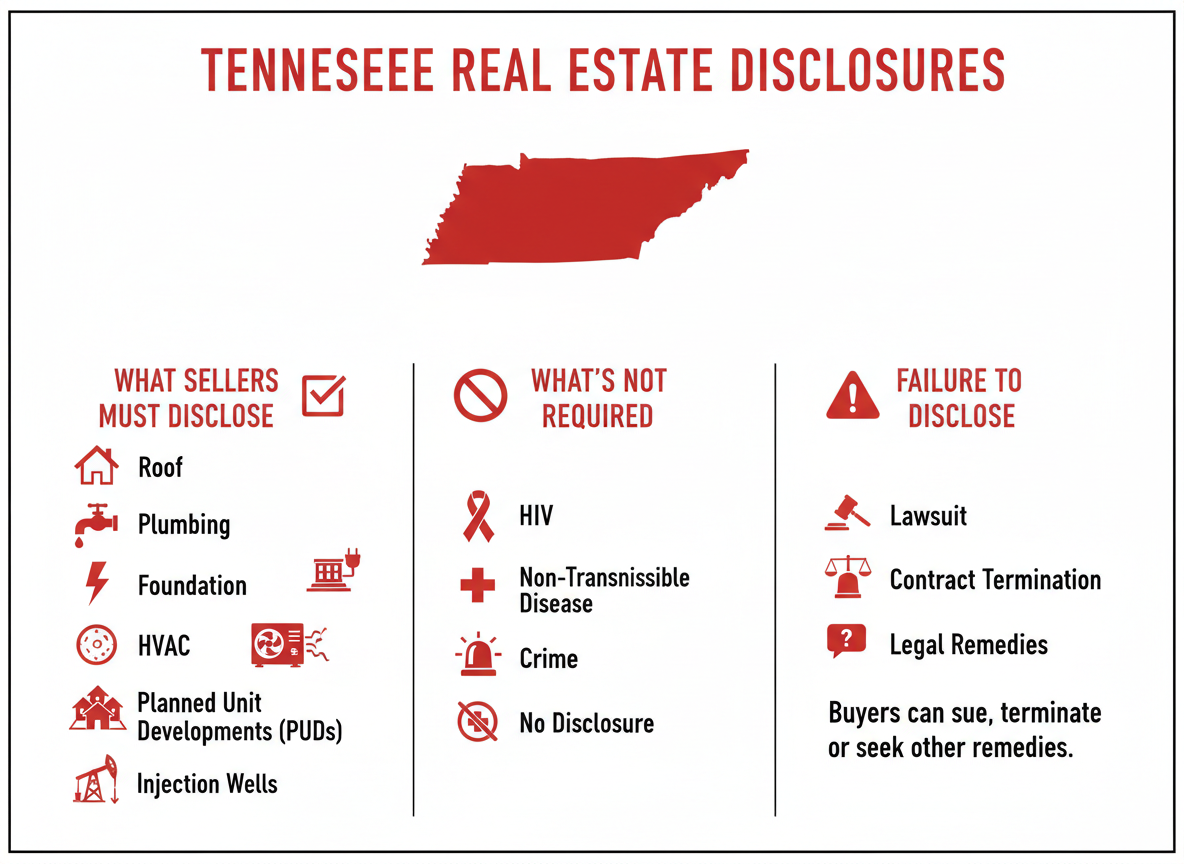Updated Feb 2026
What Must You Tell Buyers?
Tennessee Real Estate Disclosures are required by law and require sellers to disclose all known material defects to buyers before or at the time an offer is made. Sellers must provide one of two things:
- Full disclosure of all known material defects. This includes a notice that buyers should consider professional inspections, that disclosures aren’t the real estate agent’s representations, and that sellers aren’t required to investigate further.
- Or, a statement that the seller makes no representations or warranties, and the buyer accepts the property as-is. (This applies only if the buyer waives disclosure in the contract.)
What Counts as a Material Defect in Tennessee?
The law doesn’t clearly define “material defects,” so disputes often arise. Tennessee Code Annotated § 66-5-210 offers a model disclosure form, also available online from the Tennessee Realtors Association: TN Property Disclosure.
Material defects include issues with floors, windows, plumbing, electrical, roof, or HVAC. Sellers must also disclose known sinkholes, Planned Unit Developments, Injection Wells, and foundation problems. Sellers only have to disclose what they actually know. They don’t have to investigate or research—just be honest.
What Does Not Count as Material in Tennessee?
According to Tennessee Code Annotated § 66-5-207, some issues do not require disclosure. By law, sellers don’t have to disclose if a previous occupant had HIV or another non-transmissible disease. Sellers also don’t have to disclose homicides, felonies, or suicides that occurred in the home. The law prioritizes prior owners’ privacy in these cases.
What Happens if You Fail to Disclose?
If sellers fail to disclose material defects, buyers have options. Buyers can sue for damages, terminate the contract before closing, or seek other legal remedies.
If you have legal questions about your Tennessee real estate or want to know more about your legal rights, contact Collins Legal.
MORE BLOGS
→ BLOG: What Real Estate Agents can’t talk about!
→ BLOG: Contingency: What does it mean in Real Estate?
→ BLOG: You received your Closing Disclosure, Now What?

